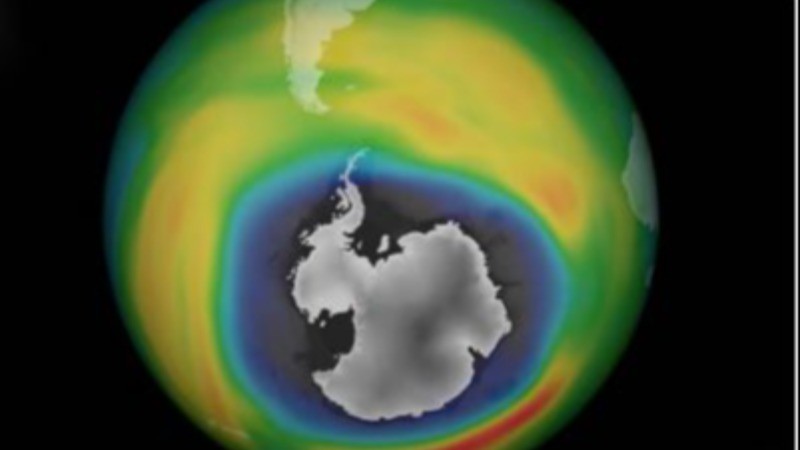
The ozone layer, which is located at an altitude of 10 to 30 miles in the Earth's atmosphere, protects our planet by absorbing the sun's harmful ultraviolet (UV) rays. This layer is not only important for human health, but it is also essential for all living organisms and ecosystems. Depletion of the ozone layer can not only lead to health problems, but it can also cause environmental imbalances.
Depletion of the ozone layer: causes and effects
The main causes of ozone depletion include the use of man-made chemicals, especially chlorofluorocarbons (CFCs), found in refrigerators, air conditioners, and aerosol sprays. When these chemicals reach the atmosphere, they break down ozone molecules, weakening the ozone layer.
Effects on health
Skin cancer: Depletion of the ozone layer will increase UV radiation, increasing the risk of skin cancer. This is especially worrisome for people who spend more time exposed to sunlight.
Eye problems: Increased exposure to UV radiation can cause cataracts and other vision problems. This can reduce eye protection and adversely affect vision.
Immune System: Increased amounts of UV radiation can weaken the human body’s immune system, increasing the risk of various diseases and infections.
Impact on the environment
Ecosystem: Depletion of the ozone layer can disturb the balance of ecosystems. Increasing amounts of UV radiation can affect aquatic ecosystems, especially phytoplankton, which are a fundamental part of the marine food chain.
Effects on crops: Increasing amounts of UV radiation can also affect crop growth and production. This can lead to reduced food security and negatively impact agricultural productivity.
Impact on the global economy
Depletion of the ozone layer can also have a negative impact on the global economy.
Healthcare Expenses: Due to rising health problems, health care expenses will increase. This will put more burden on government and private health services.
Agriculture and food security: Decreased agricultural productivity can lead to higher food prices, which could lead to a global food crisis. It can also lead to social and political instability.
International measures
Many international measures have been taken to protect the ozone layer. The Montreal Protocol was signed in 1987, which attempted to reduce the production and use of CFCs and other harmful chemicals. This protocol has been successful globally and has resulted in the ozone layer slowly recovering.
Responsibility of users
Government measures alone are not enough; common people also need to take steps in this direction.
Do not use harmful chemicals: Products that use CFCs and other harmful chemicals should be stayed away from.
Energy efficiency: Use appliances that promote energy efficiency, reducing the need for ozone-depleting chemicals.
Public awareness: Spread awareness about the importance of the ozone layer and alert others about the issue.
If the ozone layer is depleted, it can have serious effects on human health, environment and the global economy. Though efforts are being made at the international level, it is important that all of us actively participate in this direction. We must strive to protect the ozone layer so that future generations can live in a safe and healthy environment. Our small efforts together can bring about a big change, and it is our duty to protect this important protective layer of the earth.
Amit Shah Urges Haryana to Vote for a Corruption-Free Future Amid High-Stakes Election
Amit Shah Hints at Passing Waqf Bill in Winter Session; Criticizes Congress in Haryana Rally
Amit Shah Hints at Passage of Waqf Bill 2024 in Upcoming Winter Session